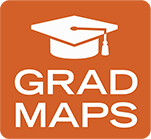| |
Feb 02, 2026
|
|
|
|
|
2023-24 Catalog ARCHIVED CATALOG: Content may no longer be accurate.
Art Education (BA)
|
|
 Return to: Telitha E. Lindquist College of Arts & Humanities Return to: Telitha E. Lindquist College of Arts & Humanities
Art Education majors are encouraged to consult with advisors in the Jerry and Vickie Moyes College of Education (call 801-626-6269) and in the Visual Arts Department (call 801-626-7273).
- Program Prerequisite: Not required.
- Minor: Required.
- Grade Requirements: A grade of “C” or better in courses required for all majors and minors (a grade of “C-” is not acceptable).
- Credit Hour Requirements: A total of 120 credit hours is required for graduation. Of this total, 48 credit hours in Visual Arts are required. A total of 40 upper division credit hours is required by the university for graduation (courses numbered 3000 and above from any department).
- Program Code: 3062BA
- CIPC: 131302
Students who select the Art Education Major must satisfy the Teacher Education admission and licensure requirements (see Teacher Education Department ).
Advisement
All Art Education majors should interview with the department chair/advisor early in their course of study. Call the Department of Visual Arts at 801-626-6455 for more information or to schedule an appointment. (Also refer to the Department Advisor Referral List.)
 Use Grad MAPs to plan your degree Use Grad MAPs to plan your degree
Admission Requirements
All Art Education majors must first declare a Major (program of study - see Enrollment Services and Information ) with the department secretary and must meet the Teacher Education admission and licensure requirements (see Department of Teacher Education ).
General Education
Refer to Degree Requirements for either Bachelor of Science or Bachelor of Arts requirements. See also specific requirements for the BS or BA listed under the major course requirements. The following Foundation courses will also fulfill general education requirements in the creative arts category: ARTH 1090 and ARTH 1100 .
Program Learning Outcomes
- Technical Proficiency - Produce technically proficient visual work.
- Conceptual, Ethical, Critical - Utilize conceptual frameworks, ethical reasoning, and critical thinking skills in the making of visual media.
- Learn, Adapt, Apply - Demonstrate the ability to learn, adapt, and apply new techniques, tools, processes, and ideas.
- Assess, Analyze, Synthesize - Assess, analyze, and synthesize historical and contemporary information regarding visual art and design.
- Writing and Oral Communication - Communicate effectively and ethically about visual media through written or oral means.
- Recognize and Identify - Recognize and identify historically influencial styles, movements, periods, theories, and practitioners of art and design in a global context.
- Contemporary Professional Practices - Implement contemporary professional practices in the field.
- Cooperation With Peers - Demonstrate the ability to work cooperatively, ethically, and effectively with peers.
- Profession, Practice, Community - Explain visual art and design as a profession, practice, and global community.
|
Foundation Courses Required for All Art Majors (27 credit hours)
The following are required for all BS/BA/BFA majors and should be completed by the end of the sophomore year. Studio Foundation courses are offered Fall and Spring semesters. Look for an “F” or a “Sp” at the end of ArtHistory and advanced studio course titles to see when they are usually offered. An “e” or an “o” indicates that the course is offered only in even or odd years. Course offering schedules may change. Consult the current course schedule for the latest information. The 1000 level courses should be taken during the freshman year. Choose two of the following courses
Choose one of the following courses
Studio Distribution (9 credit hours)
Select one of the following
Select one of the following
Select one of the following
Required Courses (6 credit hours)
Studio Electives (6 credit hours)
Select six credit hours of studio art coursework. |
 Return to: Telitha E. Lindquist College of Arts & Humanities Return to: Telitha E. Lindquist College of Arts & Humanities
|
|